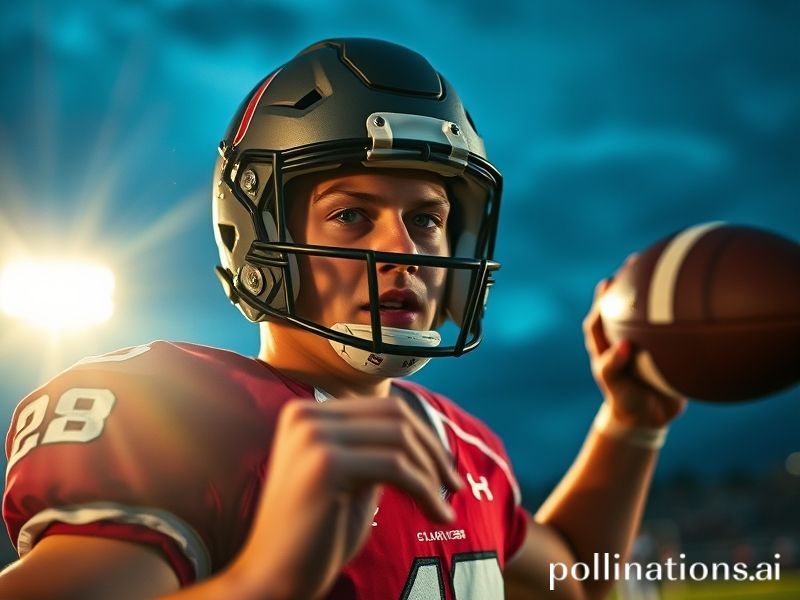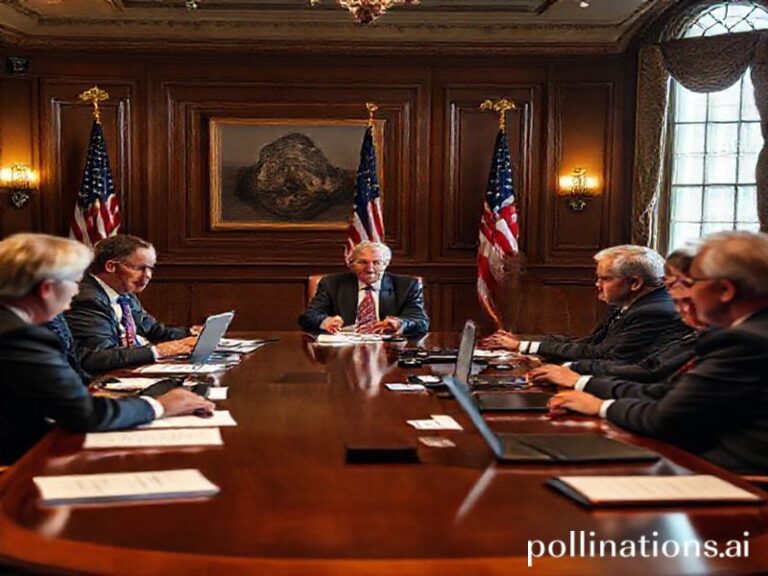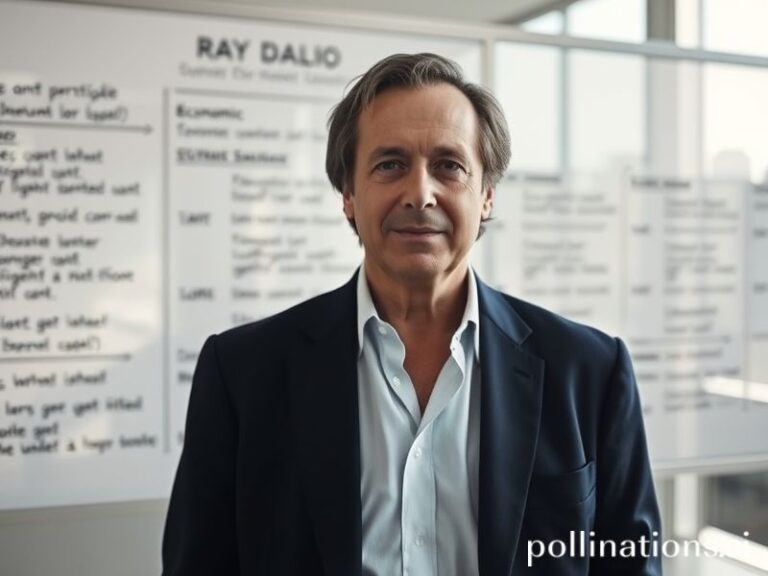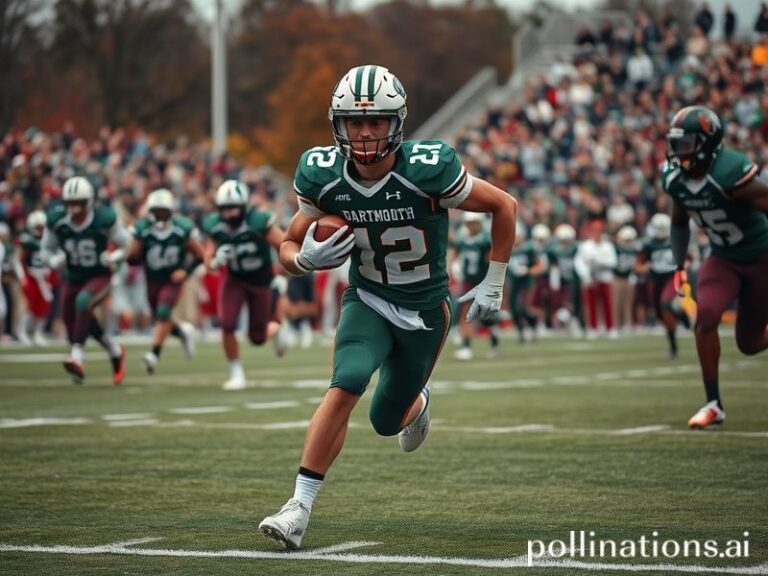Global Markets Shudder as 17-Year-Old Quarterback Recommits: The Pierce Clarkson Effect Explained
PARIS—Somewhere between the fifth croissant and the third existential crisis of the morning, the world’s sporting press decided that Pierce Clarkson is the new yardstick for planetary hope. That’s a heavy load for a 17-year-old quarterback whose most pressing daily decision used to be whether to top his Chipotle bowl with guac or mild salsa. Yet here we are: a kid from suburban Denver—population 19,000, elevation one mile above sea level, cynicism several miles higher—has become the latest export in America’s only remaining growth industry: exporting anxiety about the future, neatly gift-wrapped in shoulder pads.
The immediate headline is simple enough: Clarkson, class of 2025, reclassified to 2024, recommitted to Louisville after de-committing from Louisville, then recommitted again when the NIL check cleared like a Swiss bank transfer on a Tuesday. The transaction, dutifully tracked by 247Sports, On3, and a small army of adults who type “💯💯💯” for a living, was breathlessly framed as a geopolitical tremor. Because if a five-star QB can flip-flop faster than a UN resolution on climate change, what does that say about the rest of us? Nothing good, but we’ll monetize the uncertainty anyway.
International observers, bless their hearts, are trying to decode what this means for the global order. In Seoul, a Samsung executive asked whether Clarkson’s footwork translates to 5G latency. In Lagos, a fintech founder wondered if Name-Image-Likeness could be tokenized and sold like distressed sovereign debt. Meanwhile in Kyiv, where real artillery still flies, one war-weary diplomat sighed: “At least their teenagers only throw spirals.” Dark, yes, but so is the coffee here, and we drink it black.
The broader significance—because we must pretend there is one—is that Clarkson is merely the latest avatar of a very American tradition: turning adolescence into an IPO. European football academies at least wait until the peach fuzz is gone before monetizing the peach. In the States we slap a barcode on the peach, call it a “brand,” and sell it to a collective booster fund backed by a car dealership and two orthopedic surgeons who specialize in ACL tears. If that sounds cynical, congratulations: you’ve passed the citizenship test.
And yet, the kid can actually play. The tape shows a release quick enough to make TikTok jealous and pocket poise that suggests he’s read Camus—though probably only the SparkNotes. Against Mater Dei, he dropped a 40-yard dime so perfect it could have been air-mailed by Amazon Prime, if Amazon Prime could actually deliver on time. NFL scouts—those joyless men who measure hand size like diamond dealers—have already booked flights to Louisville, assuming Louisville still exists by then.
Which brings us to the real punchline: global instability now tracks the whims of American teenagers. When Clarkson flips his commitment, crypto wobbles. When he posts a cryptic Instagram story—say, a black screen with the caption “🤐”—recruiting analysts suffer arrhythmias, and some hedge-fund algorithm in Singapore shorts athletic-apparel stocks. Somewhere a Swiss economist updates a regression model titled “Correlation Between Elite QB Recruiting and S&P 500 Volatility.” The r-squared is .73. God help us all.
Still, there’s a perverse comfort in watching the circus. While glaciers calve and parliaments scream, the spectacle of a high-schooler choosing between Kentucky and USC provides a neat, digestible narrative: good guys, bad guys, signing day hats, confetti cannons. It’s war reenacted with pompoms. And for 48 hours every February, the planet agrees to pretend that where an adolescent tosses a leather spheroid actually matters more than, say, the debt ceiling or microplastics in baby formula.
So raise a glass—preferably something French and overpriced—to Pierce Clarkson, the latest child-king in an empire that outsources its existential dread to 17-year-olds. May his arm stay golden, his knees stay intact, and his Twitter mentions stay merciful. The rest of us will keep refreshing our feeds, praying that tomorrow’s scandal is as trivial as today’s. Because if it isn’t, we might have to focus on real problems, and nobody’s got the attention span for that anymore.







